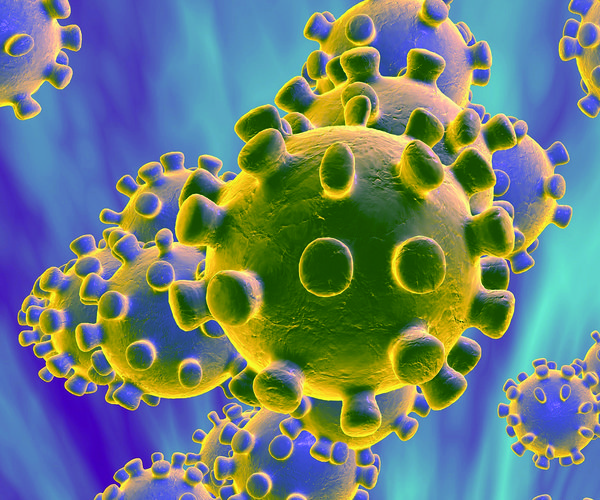By TIM SULLIVAN and CHRIS RUGABER Associated Press
Shutdowns swept across the United States, with nearly 7 million people in the San Francisco area all but confined to their homes Tuesday, even as spring break crowds flooded a Florida beach and dozens lined up to pose for pictures in front of the world-famous "Welcome to Las Vegas" sign.
The official reaction to the coronavirus emergency varied dramatically from place to place in the U.S., despite new, more urgent warnings from the Trump administration, which called on Americans not to gather in groups of more than 10 and advised older people to stay home.
Three states pressed ahead with their presidential primaries Tuesday. Ohio called off its primary hours before the polls were to open.
Dr. Deborah Birx, coordinator for the federal response to the virus, called on the "army of millennials" to lead the charge. Birx said on ABC's "Good Morning America" that the nation needs young adults doing everything they can to avoid infection, but also protecting their parents and grandparents.
Birx has said that millennials, those born in the 1980s and early '90s, are vital to stopping the spread of the virus, in part because they grew up with social media and understand how to work and communicate without meeting in person.
But not all those millennials were listening. With beaches on Florida's Gulf coast near Tampa still open, at least one was full of spring breakers. Gov. Ron Desantis said he would leave beach restrictions up to individual communities.
"It's not probably advisable to have spring break gatherings," but small beach groups are probably OK, he said. "I think the communities can work that out."
Texas Gov. Greg Abbott, a Republican, praised the federal government's response as he took only limited action amid the outbreak. Unlike other governors of heavily populated states, Abbott has not made explicit calls for limiting mass gatherings.
"This is not a time to panic," he said. "It's not as if we have never been through this before. We've been through this many, many times."
The comments came on the same day the number of infections in the U.S. climbed to nearly 4,500. Worldwide, more than 7,100 have died. The death toll in the U.S reached at least 88, with more than half of the victims from Washington state.
With the U.S. economy shuddering to a near-halt, the Dow Jones Industrial Average plummeted nearly 3,000 points Monday, or 13%, its biggest one-day percentage loss since the Black Monday crash of 1987.
The rapid work stoppage had Americans fretting about their jobs and their savings, threatened to overwhelm unemployment benefit programs, and heightened fears the country could plunge into a recession.
The president acknowledged for the first time that the outbreak may send the economy into a recession and suggested that the nation may be dealing with the virus until July or August.
Elections officials in Arizona, Florida and Illinois said they were taking precautions to make sure voters could safely cast their ballots. The immediate problem: Hundreds of polling site workers dropped out, forcing state officials to scramble.
In Chicago, the election commission begged healthy people to pitch in.
"Please, please heed our call and volunteer," said Marisel Hernandez, head of the commission. "Help us."
Meanwhile, millions of Americans were holed up at home, with many thrown out of work until further notice as the list of businesses forced to close across the U.S. extended to restaurants, bars, gyms and casinos.
Officials in six San Francisco Bay Area counties issued a "shelter-in-place" order affecting millions, requiring most residents to stay inside and venture out only for food, medicine or exercise for three weeks — the most drastic measure taken yet in the U.S. to curb the spread of the virus.
"I know today's order is a radical step. It has to be. We need to act now, all of us," said Dr. Grant Colfax, director of the San Francisco Health Department.
Health officials say that "social distancing" — encouraging people to avoid close contact with others — is a key to slow the spread of the virus and keep U.S. hospitals from being overwhelmed with a sudden deluge of patients.
Most people who come down with the disease have relatively mild symptoms, but it can be deadly for some, especially the elderly and those with underlying health problems. Most people infected with the virus recover in a matter of weeks.
The shutdowns touched every corner of the country: blackjack dealers in Las Vegas, theme park workers in Orlando, Florida, restaurant and bar employees nationwide, and winery workers in California. At least eight states called on all bars and restaurants to close at least part of the day.
With schools closed for tens of millions of children across the country, parents began using lesson plans that included flash cards, online learning, dog walks and creativity sessions. Many did this while juggling work conference calls, emails and memos. Others scrambled to find child care.
Nationwide, many restaurants were restricted to takeout or delivery only.
___
Associated Press writers Kelli Kennedy and Terry Spencer in Fort Lauderdale, Florida; Mike Schneider in Orlando, Florida; Sophia Tareen and Tammy Webber in Chicago; John O'Connor in Springfield, Illinois; Jonathan J. Cooper in Phoenix; Christina A. Cassidy in Atlanta; Julie Watson in San Diego; Olga R. Rodriguez in San Francisco; Philip Marcelo in Boston and Ted Warren in Seattle contributed to this report.





